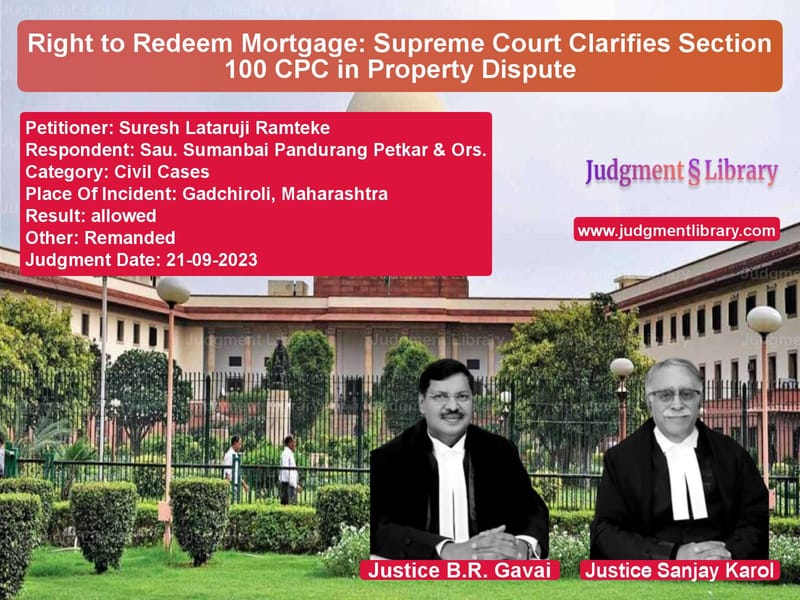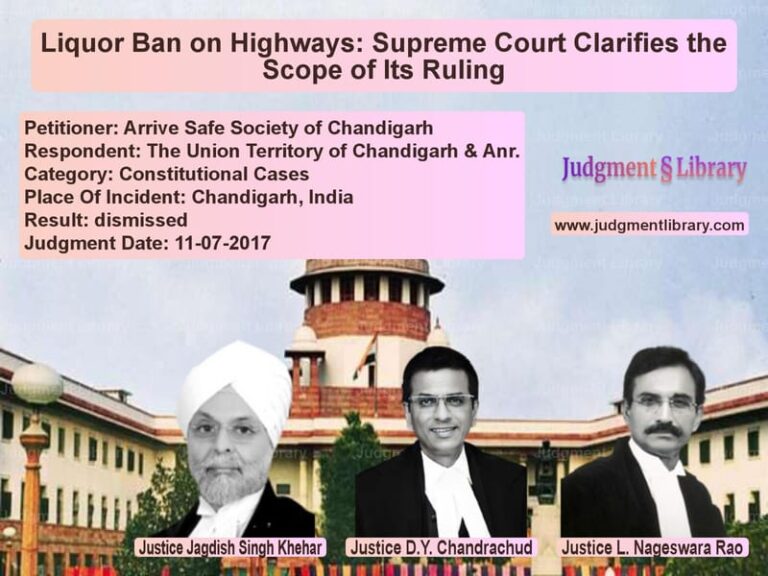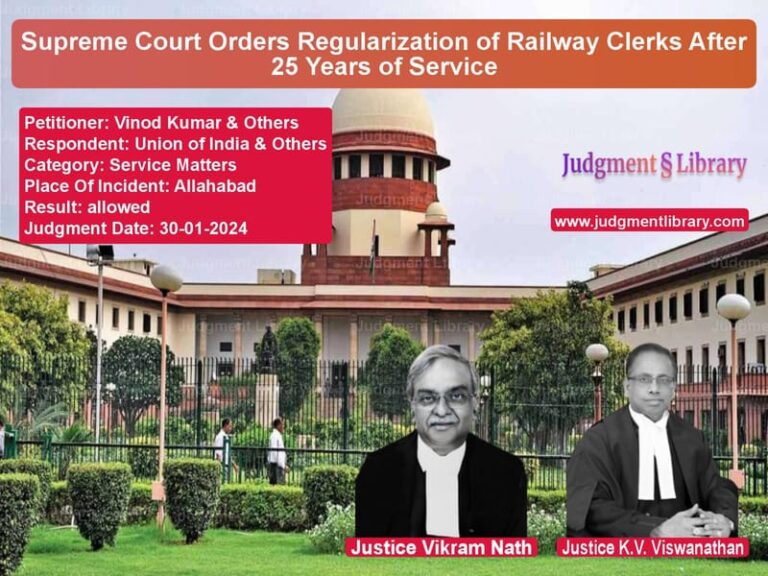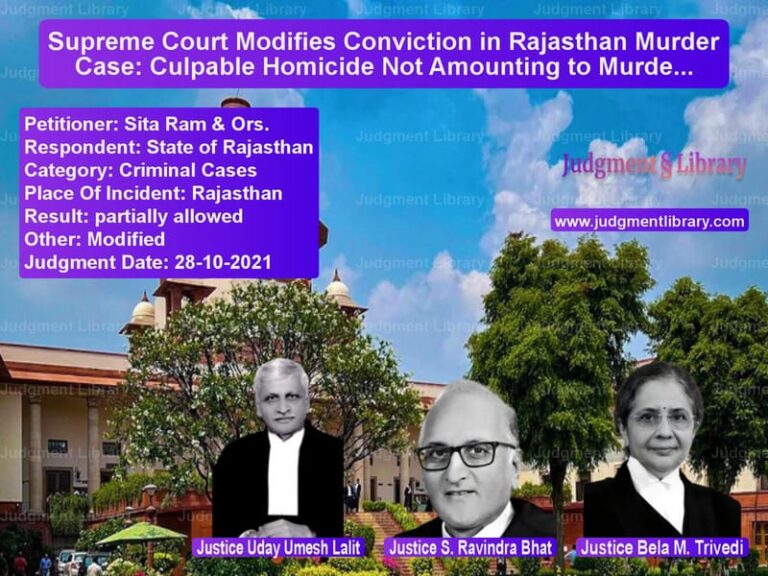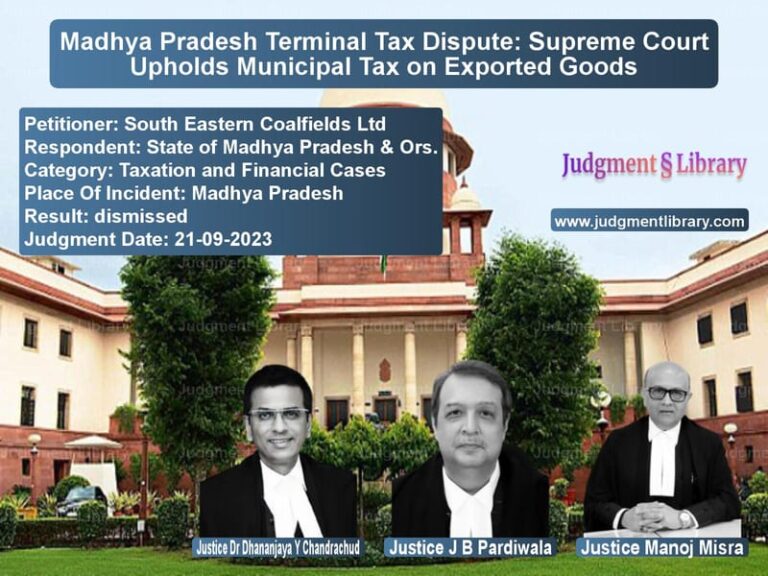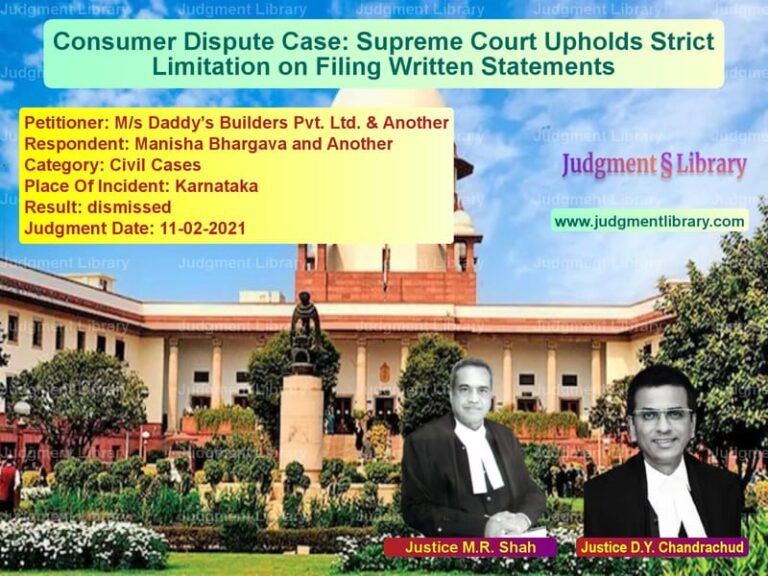Right to Redeem Mortgage: Supreme Court Clarifies Section 100 CPC in Property Dispute
The Supreme Court of India recently delivered a judgment in the case of Suresh Lataruji Ramteke vs. Sau. Sumanbai Pandurang Petkar & Ors. The primary legal question was whether the High Court could reverse findings of fact recorded by two lower courts in a second appeal without affording adequate hearing to the parties. The judgment sheds light on the principles governing the exercise of appellate jurisdiction under Section 100 of the Code of Civil Procedure (CPC), particularly in disputes related to property transactions and specific performance.
The case involved a dispute over a sale agreement concerning a 3-acre parcel of land in Maharashtra. The trial court and the first appellate court ruled in favor of the plaintiff, Suresh Lataruji Ramteke, granting him specific performance of the sale agreement. However, the Bombay High Court (Nagpur Bench) reversed these findings in a second appeal without properly considering the evidence. The Supreme Court, therefore, set aside the High Court’s order and remanded the case for fresh consideration.
Background of the Case
The dispute arose when the respondent, Sumanbai Pandurang Petkar, agreed to sell 3 acres of land to the appellant, Suresh Lataruji Ramteke, for ₹6,60,000. The necessary permission for the sale was obtained from the Divisional Commissioner, Nagpur Division. Despite repeated efforts by the appellant, the sale deed was not executed, prompting him to file a suit for specific performance.
Read also: https://judgmentlibrary.com/supreme-court-upholds-validity-of-will-in-family-property-dispute/
The trial court ruled in favor of the plaintiff, directing the defendant to execute the sale deed. The first appellate court upheld this decision, confirming that the plaintiff had established his readiness and willingness to perform his contractual obligations. However, the defendant challenged the ruling in a second appeal before the High Court.
Key Issues Considered
- Whether the High Court, in a second appeal under Section 100 CPC, could reverse concurrent findings of fact without perusing the trial records.
- Whether the High Court erred in framing substantial questions of law without giving the parties an adequate opportunity to address them.
- Whether the findings of the lower courts regarding the plaintiff’s readiness and willingness to execute the sale deed were perverse.
Petitioner’s Arguments
The appellant, Suresh Lataruji Ramteke, contended that:
- The High Court violated procedural norms by framing substantial questions of law and deciding the appeal on the same day without affording the parties adequate hearing.
- The High Court failed to examine trial records before reversing the concurrent findings of the lower courts.
- The High Court did not establish that the findings of the lower courts were perverse or based on inadmissible evidence.
- The plaintiff had presented a cheque for ₹3,90,000 to demonstrate his financial readiness, which was ignored by the High Court.
Respondent’s Arguments
The respondents, represented by their counsel, argued that:
- The agreement to sell was not enforceable as the plaintiff failed to establish continuous readiness and willingness to perform his obligations.
- The transaction was time-barred, and the suit for specific performance should have been dismissed on grounds of limitation.
- The High Court correctly intervened since the findings of the lower courts were legally unsustainable.
Supreme Court’s Analysis
The Supreme Court emphasized the settled legal principles governing second appeals under Section 100 CPC:
- The High Court cannot interfere with findings of fact unless they are perverse, based on no evidence, or arrived at by misapplying legal principles.
- Substantial questions of law must be framed at the time of admission of the second appeal, and parties must be given a fair opportunity to address them.
- The High Court must examine trial records before reversing concurrent findings of fact.
The Court observed:
“The right to redeem under the SARFAESI Act must be exercised before the auction notice is published. Allowing redemption post-auction would defeat the entire purpose of the SARFAESI mechanism.”
“Judicial intervention in completed auction processes must be exercised with caution to maintain the confidence of investors and bidders.”
The Supreme Court found that the High Court had acted in haste by deciding the case without giving due consideration to the evidence. It noted that setting aside concurrent findings of fact without reviewing trial records amounted to a violation of established legal principles.
Final Judgment
The Supreme Court set aside the High Court’s order and remanded the case for fresh consideration, directing the High Court to:
- Frame substantial questions of law at the time of admission.
- Afford adequate opportunity to both parties to present their arguments.
- Examine trial records before deciding whether to overturn findings of fact.
This judgment reaffirms the importance of procedural fairness in second appeals and underscores the limited scope of High Court interference in factual findings.
Implications of the Judgment
- Reinforces the principle that High Courts cannot arbitrarily reverse factual findings in second appeals.
- Protects litigants from procedural irregularities that may arise from hurried decisions.
- Establishes clear guidelines for High Courts in handling appeals under Section 100 CPC.
Conclusion
The Supreme Court’s ruling in this case is a crucial intervention in ensuring procedural fairness in property disputes. By reaffirming the restrictions on second appellate jurisdiction under Section 100 CPC, the Court has strengthened legal protections against arbitrary reversals of factual findings. This case serves as an important precedent for future disputes involving property transactions and specific performance.
Petitioner Name: Suresh Lataruji Ramteke.Respondent Name: Sau. Sumanbai Pandurang Petkar & Ors..Judgment By: Justice B.R. Gavai, Justice Sanjay Karol.Place Of Incident: Gadchiroli, Maharashtra.Judgment Date: 21-09-2023.
Don’t miss out on the full details! Download the complete judgment in PDF format below and gain valuable insights instantly!
Download Judgment: suresh-lataruji-ramt-vs-sau.-sumanbai-pandur-supreme-court-of-india-judgment-dated-21-09-2023.pdf
Directly Download Judgment: Directly download this Judgment
See all petitions in Property Disputes
See all petitions in Contract Disputes
See all petitions in Specific Performance
See all petitions in Judgment by B R Gavai
See all petitions in Judgment by Sanjay Karol
See all petitions in allowed
See all petitions in Remanded
See all petitions in supreme court of India judgments September 2023
See all petitions in 2023 judgments
See all posts in Civil Cases Category
See all allowed petitions in Civil Cases Category
See all Dismissed petitions in Civil Cases Category
See all partially allowed petitions in Civil Cases Category

